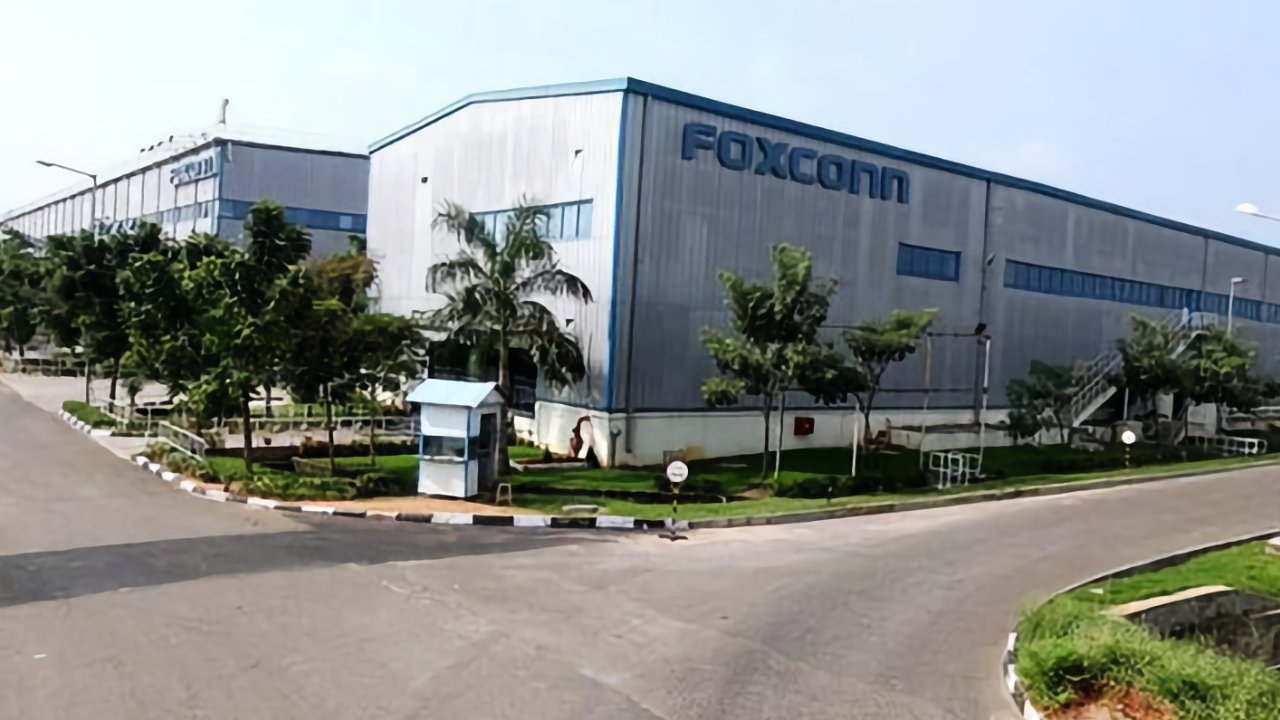A profile of Apple's major iPhone factory in India's Sriperumbudur shows the rapid expansion of the facility, and despite recovering from one set of problems, there are still poor working conditions that need to be addressed.
Sriperumbudur in Tamil Nadu state is a massive factory, and part of Apple's plan to shift away from production centered in China to a more distributed setup. Operated by Foxconn, the facility houses 17,000 workers and is producing approximately 6 million iPhones per year, and will set its sights to do more.
The profile of the factory by Time covers a lot of elements, including a study of satellite images showing the site's construction activities over five years. Since 2021, there have been three new buildings constructed, with ground broken on space for another three.
As part of the expansion, issues with food poisoning through poor working conditions led to protests and a cut of production. In December 2021, Apple put the factory on "probation" to clean up its act.
A government inspection at the time caused Foxconn to spend $1.6 million to improve the facility.
Problems persist
In unreleased government documents seen by the publication, an inspection on December 17, 2021 found issues that went beyond food poisoning.
Six workers were not provided protective equipment to properly manually solder iPhone parts together. This included a lack of safety goggles, chemical-resistant gloves, or respirators, need for a "highly hazardous" task according to the document.
Elsewhere, workers were not provided with eye protection, 77 pieces of automated machinery missed "interlock" mechanisms on doors, and there were 262 instances of missing guards on pressing machinery.
There were also employment law violations involving excessively high working hours, a lack of maintenance in latrines and urinals, and wages were not properly registered either.
Of the 6,126 workers on site for the inspection, more than 4,500 of them were supposedly employed by 11 different subcontractors, none of which were legally registered with the state's health and safety directorate.
It is reckoned that the findings of the inspection not only violated state law, but also Apple's own "supplier code of conduct."
After both the government and Apple stepped in, Foxconn took measures to address the issues. The following May, Apple said it had seen investment by Foxconn into the facility, and had seen "meaningful upgrades" throughout.
Following the protests, workers who spoke to the report noted positive changes, such as an increase in worker salaries and the removal of a rule that workers had to live in subcontractor-provided hostels. Working conditions and canteen food have improved, but problems remain.
This includes how workers receive the equivalent of between $0.99 and $1.22 per hour for work. While double the state minimum wage for electronics workers, there is concern that workers cannot progress up the economic ladder.
The high targets of employees are also an issue, with the possibility that assembly line workers have to work on up to 520 iPhones per hour at peak times.
One worker explained that the production targets are high at times that she could not go to the restroom if she wanted to meet them. Supervisors would reprimand her if products started to pile up at her station.
Furthermore, the tasks involved require repetitive movements in specific positions, and managers mandate that the positions are held. Attempts to alleviate pain, such as crossing their legs, can result in a reprimand.
Foxconn does say that workers can take short rests and are provided with medication, but workers are still expected to keep up the pace despite potential pain from the situation.
Third-party contractors
Since workers are employed by a third-party contractor, Foxconn benefits from a flexible workforce but with fewer legal obligations than if they were directly employed.
"Unlike fixed-term employees, these so-called contract laborers do not know even whether they can earn their livelihood beyond tomorrow. That is the degree of uncertainty we are talking about," said labor lawyer Ramapriya Gopalakrishnan. "This whole contract labor system is designed to lower labor costs and evade responsibility for compliance with labor laws."
Workers don't get sick leave or vacation days, nor do they get copies of their contracts, workers told the report. Also, workers are docked pay for taking leave on consecutive Mondays and Saturdays, and if they take three days of leave off consecutively.
A Foxconn spokesperson told the report "We work with relevant local agencies to ensure that all recruitment efforts follow Foxconn's recruitment standards and guidelines, as well as local labor regulations." Apple added it has "the highest standards in the industry for our suppliers and regularly assess their compliance to our code of conduct."
Despite all of this, and the feeling that they deserve better, workers are still sticking with the company, in part due to not easily being able to find higher wages elsewhere. However, it isn't lost on anyone that they are paid very low to work on devices far outside of their spending capabilities.
"When I compare my salary to the cost of an iPhone, obviously they can pay me better," a worker said.
 Malcolm Owen
Malcolm Owen








 Andrew Orr
Andrew Orr
 Wesley Hilliard
Wesley Hilliard

 Oliver Haslam
Oliver Haslam
 Christine McKee
Christine McKee
 Amber Neely
Amber Neely








1 Comment
This is the sort of situation from which unions arise. I hope these people receive the assistance they need to attain working conditions that at least meet the legally required standard.